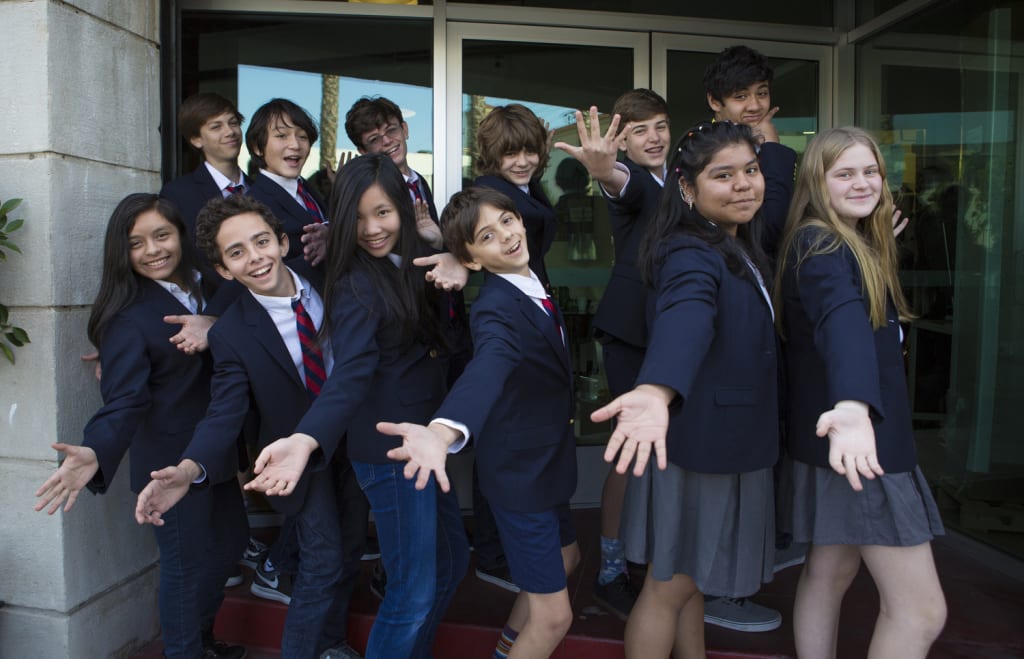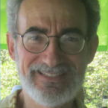Diversity and Social Justice Shape the Episcopal School of Los Angeles
Focus is on the whole person, not just standardized test scores

At the Episcopal School of Los Angeles (ESLA), having a diverse student body and infusing its curriculum with a strong sense of social justice are not trendy buzz words; they are essential parts of the school's DNA.
“ESLA was founded upon one simple truth,” says head of school Peter McCormack. “The best educational tool for any young person is the collaboration and camaraderie of peers from different backgrounds—peers who have stories and perspectives to share, the stuff of life that simply cannot be gleaned from a textbook.”
“A truly exceptional, transformative education requires a diverse and equitable learning environment,” McCormack continued. “It gives students access to entire worlds and world views they might never otherwise encounter. It opens their hearts and minds to the concerns, struggles, and joys of others—knowledge that will forever shape their convictions and actions in life.”
Incorporated in 2009, ESLA began by providing tuition-free after school programs that offered project-based learning in the STEM fields (science, technology, engineering, and mathematics). In 2012 it opened its doors to twenty-eight full-time middle school students. Since then the school has expanded to include over 210 students in grades six through twelve who learn from a broad set of liberal arts curricula. ESLA has graduated two senior classes, and hopes to grow to its target capacity of 350 students in the next five years.
The student body is reflective of the diversity of the city itself; over the past several years, half of the newly-enrolled students identify as people of color. To ensure equal opportunity for access, over 40% of tuition is funded by need-based scholarships. With an urban campus in the heart of Hollywood, the school's families—small business owners, studio executives, wage workers, Latinx, Korean-American, black, and white—are a reflection of the community.
Easily accessible by multiple forms of public transportation, which many students use to travel to and from school each day—ESLA has access to the entire neighborhood for academics, arts, athletics, and service. Students take walking field trips to nearby art galleries and studios, service council members deliver lunch to the homeless alongside the West Hollywood Food Coalition, and athletes practice and compete at the nearby Hollywood Recreation Center—the largest park in the neighborhood. The curriculum includes year-long courses on the history and literature of Los Angeles, so students understand the deep, complex roots of the institutions that shape their place in society.
“Study after study shows that students from diverse classrooms have greater cultural competencies and are better prepared for higher education and life beyond,” explained McCormack, who spent 25 years as head of school at another Los Angeles private school before joining ESLA in 2018. “But this is about far more than college prep. Breaking down the barriers in our society goes hand in hand with breaking down the barriers in our schools, and preparing tomorrow’s ethical leaders requires ethical educational practices—right now, today.”
At ESLA, McCormack emphasized, the focus is on the whole person. The goal is to produce an educated person who is also empathic and engaged in the community, not just someone who scores well on standardized tests. And the school's community engagement goes far beyond its Hollywood neighborhood. Students also visit LA’s Skid Row, where they learn firsthand about some of the city’s most vulnerable populations and the work being done by social service providers in the area. There was also a service trip during spring break last year for older students, who went to Tijuana, Mexico, where they learned first-hand about the immigration process and volunteered at a shelter for migrants.
A dedication to service and social justice is a cornerstone of the Episcopal tradition, stressed McCormack. “It’s not something we relegate to one class or to extracurricular activity—rather, it is the foundation around which all of our inquiry-based learning comes to life. You can find it in the reading lists of our English courses, in the syllabi of our history courses, in the conversations that emerge around science and technology, and in the theater and visual arts projects our students undertake.”
The school is also engaged in bringing in outside voices to contribute to its community. Renowned author Susan Orlean spoke at an event in January about The Library Book, her New York Times best seller about the 1986 Los Angeles Public Library fire. Two ESLA sophomore students were selected by the school to moderate the discussion between Orlean and the audience.
“After being open for eight years, the school finds itself at a very exciting point in its journey,” McCormack reflected. “It's a privilege to be at the helm during this period of growth. There are plenty of other schools which offer the academic rigor, plenty who offer arts and sports as we do,” he concluded, “but none whose core mission is to develop our young people, as a priority, alongside others so representative of the rich diversity of our city.”
About the Creator
Brett Peruzzi
Brett Peruzzi is an avid home cocktail crafter, and honed his tasting skills in a previous life as a certified beer judge, award-winning homebrewer, and beer journalist.






Comments
There are no comments for this story
Be the first to respond and start the conversation.